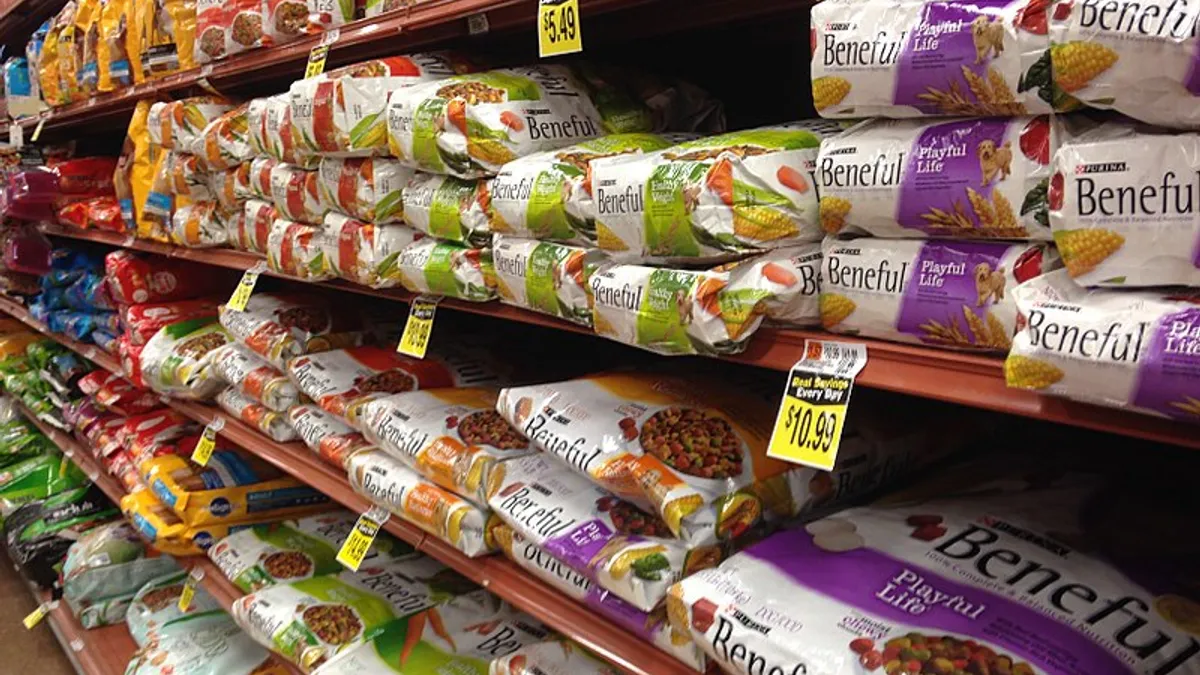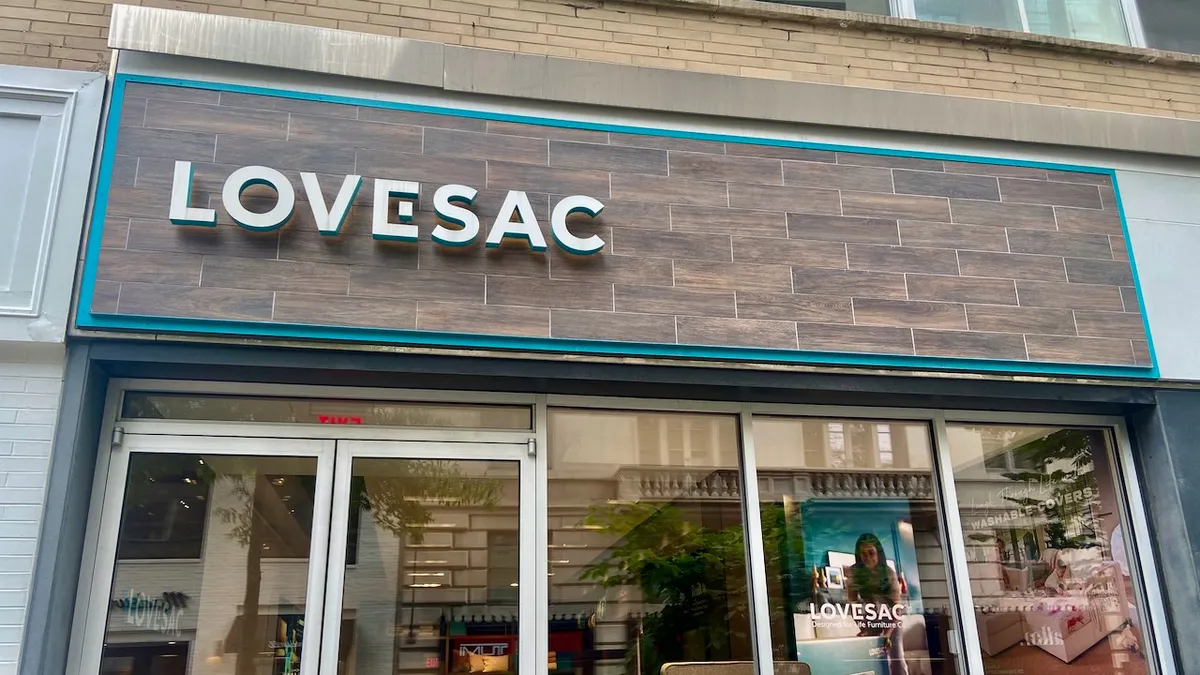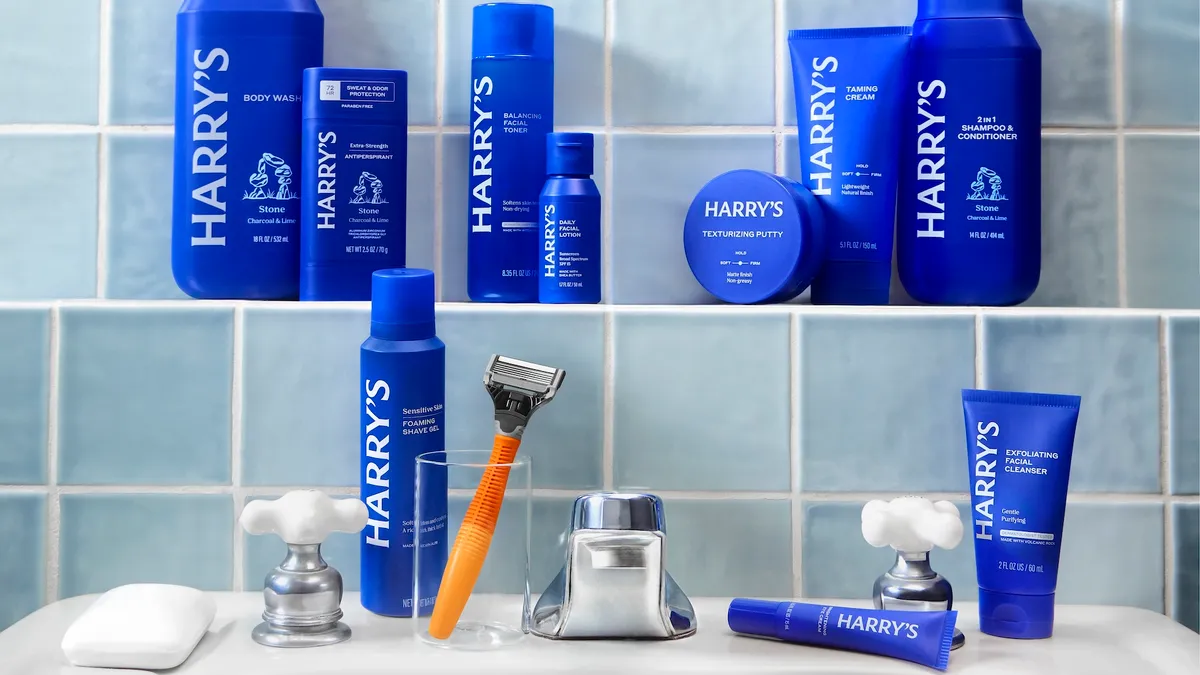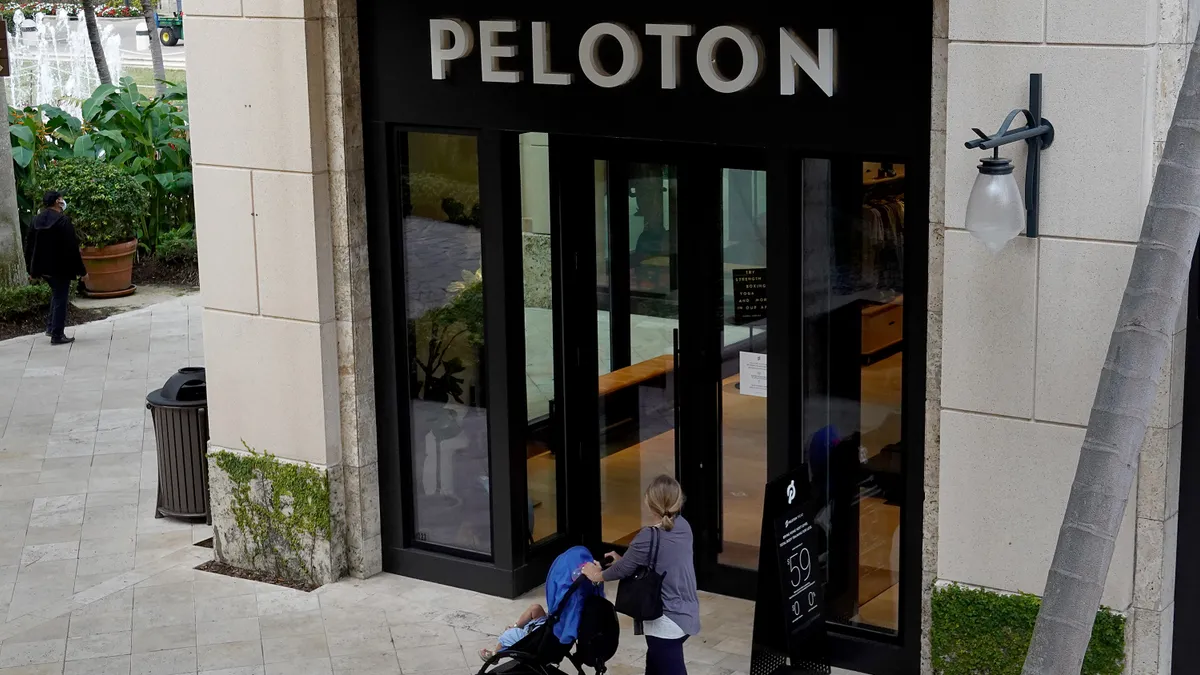Last month, consumers began stockpiling groceries in order to limit frequent trips to the store and prepare for the shelter-in-place orders to come. And because pets are increasingly being seen as extensions of the family, pet retailers saw an uptick in sales then, too.
On March 12 — the day after President Donald Trump addressed the nation from the Oval Office about COVID-19 — foot traffic at Petco and PetSmart was up 8% and 6% respectively, according to analytics firm Placer.ai. And between March 12 and March 18, sales at Chewy — which PetSmart acquired in 2017 — were up 42.5%, at Petco up 41.8%, at PetSmart up 36%, at PetValu up 42.4% and at Pet Supplies Plus up 76.4%, according to data provided by Earnest Research.
"As a cat owner, I can testify, my first concern was let's make sure that the cat gets the litter and the food because obviously if you're at home and cannot go to the store, you want to make sure that your pet is taken care of," Inna Kuznetsova, interim CEO of 1010data, told Retail Dive in an interview. "The week when the whole country did the stock up across multiple categories, we have seen the spending for pet supplies and services going up considerably."
As traditional family timelines — like tying the knot or having children — are pushed back later in life, pets, for many people, are stepping into that gap. And as a result, there's a growing humanization of them. Since states began issuing shelter-in-place orders, pet adoption and fostering rates have gone up.
"When times get tough, people tend not to forget their pups," Suzanne McDonnell, chief commercial officer and head of ventures and partnerships at Bark, told Retail Dive in an interview. "We have seen it in the past few years, we're definitely living through this cultural shift in which owners are parents, and dogs are children and many times are the most precious member of the household. What we are seeing is that parents are continuing to spend on their dogs as part of the health and well-being of their entire family."
This has affected what consumers prioritize when it comes to spending. "It's one of the last categories that you would reduce spending on," Matthew Katz, managing partner and practice lead in the Retail & Consumer practice of SSA & Company, told Retail Dive in an interview. "People love their pets, they're just one of the family."
For the four weeks ended March 28, pet food dollar growth was up 24% from the prior year, while pet supplies dollar growth was up 10.1% from last year during the same period, according to Nielsen data emailed to Retail Dive. At the same time, according to the U.S. Department of Commerce's results for March, apparel sales fell a whopping 52% year over year, furniture sales fell 28.6%, sporting goods fell 23.5% and electronics fell 14%.
"Apparel clearly is not essential during a pandemic, but pet is holding up," Andy Mantis, chief business officer at 1010reveal, told Retail Dive in an interview.
The shift to online
Hundreds of stores have temporarily shuttered or reduced hours across the country, either voluntarily or by government mandate, to help reduce the spread of the coronavirus. But pet retailers, like grocery stores or club warehouses, have been deemed essential businesses and remain open.
This doesn't necessarily mean traffic to physical locations has been booming for the sector, especially as consumers attempt to limit the number of visits they make out of their homes. As of April 17, foot traffic was down 46% at PetSmart and 55% at Petco from the year-ago period, according to placer.ai.
"There obviously will be an impact on overall sales, however not as much as if your store was closed."

Mickey Chadha
Vice President, Moody's Investors Service
"There obviously will be an impact on the overall sales, however not as much as if your store was closed," Mickey Chadha, vice president at Moody's Investors Service, told Retail Dive in an interview. "If you have a good e-commerce penetration, you probably can offset some of that through e-commerce. But none of the pet retailers have extremely high penetration in e-commerce."
Except, of course, those retailers that operate solely online. While sales at PetSmart, Petco, PetValu and Pet Supplies Plus decreased toward the end of March and early April, sales at Chewy increased 28.7%, according to Earnest Research.
Chewy CEO Sumit Singh on an April earnings call with analysts discussing fourth quarter results said, "Our shop-at-home business is proving resilient amid the current economic disruption. Our volumes have increased as customers have chosen to stay at home and take advantage of the shopping convenience that we provide." The company reported net sales for the quarter ending Feb. 2 were up 35% from the year-ago period to $1.4 billion, as active customers increased 27.2% from the prior year to 13.5 million. Executives said that beginning in late February, sales accelerated and that has continued into April.
And for Bark, which operates subscription-based subsidiaries like Bark Box and Super Chewer, business has been up as well. "If we look at our March business, we did see an uptick in our subscription business," McDonnell said. "We still see business looking pretty solid in the wake of some great uncertainty. … The overall trend is that people are continuing to spend on their dogs in a time of uncertainty, because I think not only do they care for them, like their children, but the idea of just that bit of joy and happiness that the whole family can kind of share in is so valuable right now."
"The overall trend is that people are continuing to spend on their dogs in a time of uncertainty."

Suzanne McDonnell
Chief Commercial Officer & Head of Ventures and Partnerships, Bark
While many businesses are forced to look for ways to preserve capital and cut costs, the subscription-based pet company is moving into a new category: food. Bark is beta testing a private label dog food service called Bark Eats in Columbus, Ohio. "It's a very service forward personalized approach to feeding your dog."
The shift to shopping online, particularly for pet products, which often entails heavy bags of food, can't be attributed only to the coronavirus. Rather, Katz said, "what this has done is just accelerate the timeline at which a broader number of customers and a larger share of that customer experience goes online."
But online retailers aren't the only retailers snapping up share in the sector right now.
Bark, which has retail partnerships with mass merchants, clubs and pet specialty retailers, has seen growth in its retail business, particularly with partners that also have grocery and home essentials. "That's probably to be expected in the sense that people are being asked to shelter in place, they're taking fewer shopping trips, and they're not stopping as often during, you know, an outing and so they're going to go to places where they can do their one-stop shopping," McDonnell said.
According to the Commerce Department, March sales at general retailers, which includes mass merchants, warehouse clubs and supercenters, was up 3.9% from the prior year to $62 billion. At grocery stores, March sales were up 30% year over year to $73 billion.
The future of pet retailing
Though e-commerce is expected to gain long-term relevance, the pandemic likely won't rule traditional pet retailers with brick-and-mortar stores out for good. It may, however, cause them to reevaluate their strategy — and footprint.
"If a lot of people are shopping e-commerce wise, then do they really need 1,500 stores?" Chadha said. "Especially if a number of those stores are either breaking even or not making that much money, is it worth that amount of money?"
Physical locations offer value to retailers, and consumers, that can't be accessed online, like grooming or training services. But in terms of when consumers are ready to go out and shop for everyday pet essentials again, even when given the green light to do so, Chadha said it may be "a slow transition back into the stores" if customers are satisfied with the online shopping experience they've transitioned to.
As more companies announce furloughs and unemployment numbers reach eye watering levels, economic uncertainty grows. Pet retailers may be in a lucky position.
"It all comes down to how long the situation lasts," Chadha said. "Until at least the middle of this year, the performance is going to be a challenge ... The good part is, pet retailers have been fairly resistant to recessions."





















